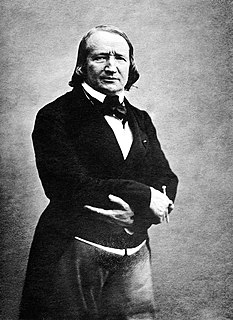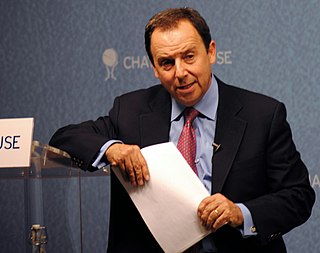A Quote by Alfred de Vigny
I think, then, that man, after having satisfied his first longing for facts, wanted something fuller - some grouping, some adaptation to his capacity and experience, of the links of this vast chain of events which his sight could not take in.
Related Quotes
The word which is best said came nearest to not being spoken at all, for it is cousin to a deed which the speaker could have better done. Nay, almost it must have taken the place of a deed by some urgent necessity, even by some misfortune, so that the truest writer will be some captive knight, after all. And perhaps the fates had such a design, when, having stored Raleigh so richly with the substance of life and experience, they made him a fast prisoner, and compelled him to make his words his deeds, and transfer to his expression the emphasis and sincerity of his action.
Many a man, brought up in the glib profession of some shallow form of Christianity, who comes through reading Astronomy to realize for the first time how majestically indifferent most reality is to man, and who perhaps abandons his religion on that account, may at that moment be having his first genuinely religious experience.
A great dread fell on him, as if he was awaiting the pronouncement of some doom that he had long foreseen and vainly hoped might after all never be spoken. An overwhelming longing to rest and remain at peace by Bilbo's side in Rivendell filled all his heart. At last with an effort he spoke, and wondered to hear his own words, as if some other will was using his small voice. "I will take the Ring," he said, "though I do not know the way.
Criticism has plucked the imaginary flowers on the chain not in order that man shall continue to bear that chain without fantasy or consolation, but so that he shall throw off the chain and pluck the living flower. The criticism of religion disillusions man, so that he will think, act, and fashion his reality like a man who has discarded his illusions and regained his senses, so that he will move around himself as his own true Sun. Religion is only the illusory Sun which revolves around man as long as he does not revolve around himself.
One posthumous measure of a person's life is how often you imagine his impossible return to deal with some event he never lived to encounter. You picture his reactions, his advice, his sage commentary and humorous asides. For instance, I think about Mark Twain's hypothetical take on current events several times a week.
Sometimes the warrior feels as if he were living two lives at once. 'There is a bridge that links what I do with what I would like to do,' he thinks. Slowly, his dreams take over his everyday life, and then he realises that he is ready for the thing he always wanted. Then all that is needed is a little daring, and his two lives become one.
When a man sought knowledge, it would not be long before it could be seen in his humbleness, his sight, upon his tongue and his hands, in his prayer, in his speech and in his disinterest (zuhd) in worldly allurements. And a man would acquire a portion of knowledge and put it into practice, and it would be better for him than the world and all it contains - if he owned it he would give it in exchange for the hereafter.
Step back in time; look closely at the child in the very arms of his mother; see the external world reflected for the first time in the yet unclear mirror of his understanding; study the first examples which strike his eyes; listen to the first words which arouse within him the slumbering power of thought; watch the first struggles which he has to undergo; only then will you comprehend the source of his prejudices, the habits, and the passions which are to rule his life. The entire man, so to speak, comes fully formed in the wrappings of his cradle.
If God really became incarnate, and if His Incarnation can with justice compel man to change his life,then we have no alternative but to conceive of this Incarnation as something which is still present and which will remain present for all future time. ... What happens in the liturgical celebration of the Eucharist is something for which all religions of mankind have exressed longing, dimly sensed was coming, and as a rule even prefigured- the physical presence of the divine Logos made man, and the presence of his sacrificial death, in the midst of the congregation celebrating the mysteries.
The President, who really had been mostly managing his one-man Barack Obama narrative and journey his whole life, without executive experience, certainly - he's not a governor. Some governors, of course, they have experience in executing power, which is something fairly unique, actually, in government. And he has, neither, a set of nourishing experiences.
Expeditions can greatly contribute towards building strength of character. Joseph Conrad in Lord Jim tells us that it is necessary for a youth to experience events which 'reveal the inner worth of the man; the edge of his temper; the fibre of his stuff; the quality of his resistance; the secret truth of his pretences, not only to himself but others.






































